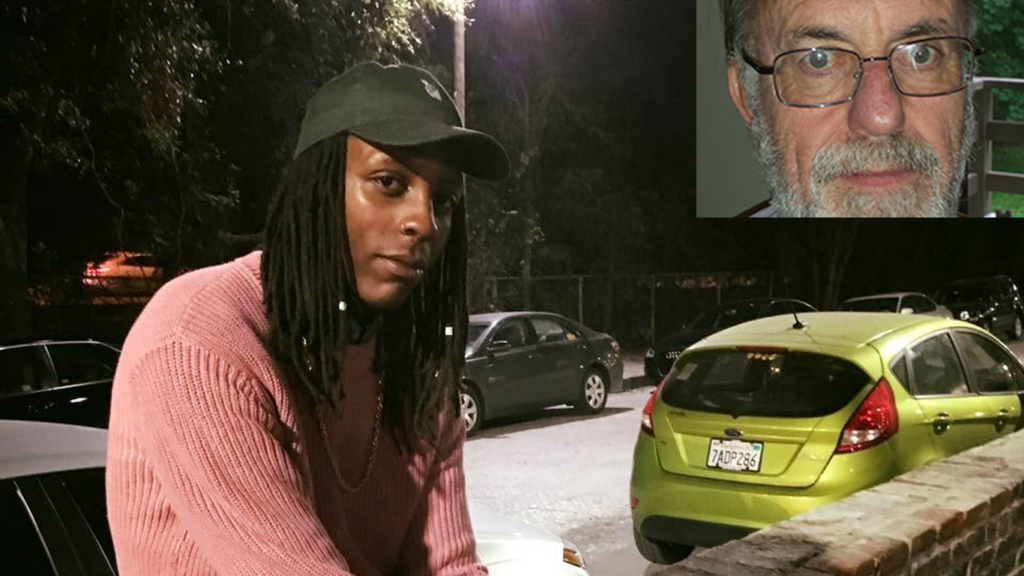“He lives a taste of the black experience through his son pain.” Editor’s note
My son, Delvon, is black and lives in Georgia. He is a funny, thoughtful young man with a mischievous smile, a good heart and caring soul. He also has long dreads and tats on both arms. His early life was challenging. Delvon was in and out of foster care until he was ten. He came to live with Stella and me as a foster child and a year later we adopted Delvon and his sister Briana. He was an average student who did what he needed to do to get by. Delvon often got into trouble in school not so much for his actions but because he argued with the teachers when he felt he was being disrespected. One teacher constantly mispronounced Delvon’s name. When my son challenged the teacher he was sent to the principal’s office and I was called. The teacher said that Delvon was disruptive and disrespectful. Delvon’s response was akin to ‘why should I respect you when you can’t even remember how to pronounce my name?’ The teacher said that he had a lot of students and you can’t expect him to remember every student’s name. Delvon replied: “why is it only the black kids’ names you forget how to pronounce?” What was most disturbing was the school administrators response. He defended the teacher and refused to acknowledge that the teachers’ actions were in any way racist.
Another time my son was at a skate park he noticed a couple of older kids bullying a younger small child. Delvon stepped up and told the bullies to leave the younger kid alone. The two bullies left but threatened Delvon saying they were coming back with their friends. Delvon left on his bike. As he was riding home he noticed two carloads of white kids chasing after him. They were trying to run him off the road yelling racist remarks. My son went into a corner store and told the owner what was happening. He called the police and wrote down the license plate. When the police officer came he wasn’t interested in talking to the store owner. He blamed my son, said these were good kids and my son should stay in his own neighborhood. When I spoke to the Captain of the police, he did not see his officers’ actions as racist.
We have all heard about the recent shooting in Georgia of Ahmaud Arbery. Like we have so many times before we express outrage, offer prayers and thoughts and go about our business. Albert Einstein is credited with saying: “Insanity is doing the same thing over and over again and expecting different results.” We rightfully place some blame on President Trump for creating such a divisive atmosphere where people like the attackers believe they are morally right in shooting a young black man just because. We do this without acknowledging that long before Trump was elected president young black men were being lynched. We view these shootings as isolated incidents by deranged white racists, while we allow the systematic racism that is so ingrained into our society to continue and flourish. We all have blood on our hands. In his book How to be Antiracist, Dr Kendi says “Critiquing racism is not activism.” It is not enough to say ‘I am not a racist’ we have to be actively anti-racist. Dr. Elisabeth Vasko in her book Beyond Apathy writes that we are complacent when we are willing to tolerate violence against the poor and the marginalized. She says, “We live in a society that is all too willing to tolerate violence. Violence, a communal problem, impacts the flourishing of all involved: victims, perpetrators, and bystanders.” We should all be outraged and saddened by the senseless shooting of Ahmaud Arbery. Just as we should be outraged that COVID-19 is affecting communities of color more dramatically than predominantly white communities.
In October 2018 my wife and I received a phone call. It was the call that every parent of a black child dreads and prays they never receive but anticipates receiving. The voice on the other end said, “Your son has been shot, he is in critical condition in the hospital.” He was shot trying to be a peacemaker, stepping in the middle of two people fighting. He lay there bleeding out while his girlfriend desperately tried to stop the bleeding with towels. A few minutes later the police arrived. Instead of helping my son, they treated him as if he was a criminal. They interrogated him asking him whether this was gang related or a drug buy gone bad. When the ambulance came the EMT yelled at the police saying Delvon was bleeding out why weren’t they doing anything to help him.
Thankfully my son survived. Today he works as a cook at a restaurant. His shift typically ends around 11 pm. Delvon lives about a mile from the restaurant so after his shift he usually walks home. He should be able to walk home without fear of being stopped and questioned by the police or shot because someone saw him and assumed, because he is black, has dreads and tats he must be a criminal, gang banger or drug dealer. Ahmaud Arbery was shot because the men who spotted him jogging didn’t see him as a child of God, as a brother but rather as ‘other.’
The 13th century Franciscan theologian St. Bonaventure tells us that how we choose and what we choose makes a difference – first in what we become by our choices and second what the world becomes by our choices. St Francis of Assisi taught that we are all connected through God and with God. We can choose to live in a world where we are all one with God. A world where Delvon can walk home at not without fear of being shot.

